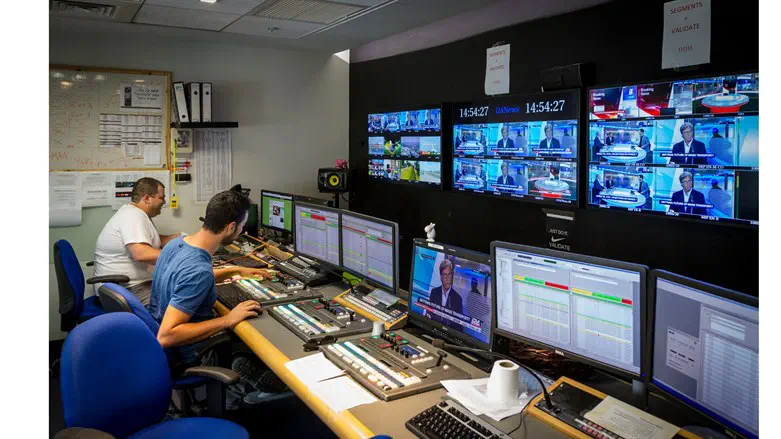
Dr. Yehudit Yehezkelly co-authored this article.
(JNS) Talk of civil disobedience is shaking Israeli society and even more so the Israeli media. Various politicians’ calls for such disobedience in response to Israel’s new government is in essence a call to overthrow what is seen as an illegitimate regime despite its clear majority. Shockingly, this is considered acceptable by most Israeli media figures, who oppose the results of the last election.
The Israeli media is a social caste that probably voted overwhelmingly for the center-left. Yet the majority of the people of Israel voted for the right-wing bloc led by Prime Minister Benjamin Netanyahu.
On the other hand, the voters expect the winners of an election to have the skill needed to govern. In a democratic system, it is important that the executive not be influenced by a change of government. Thus, a civil service system is established that performs its role as necessary, irrespective of the party in power.
When there is agreement between the elected officials and the executive powers, everything flows smoothly. But when the opinions of the senior clerks of the civil service differ from those of the elected politicians, the system cannot function.
The media has an important role in giving legitimacy to the regime, but when the regime doesn’t concur with its worldview, then like any other sector, it flexes its muscles.
It’s enough to see the rising overblown estimates of the number of demonstrators at the anti-government protest in Habima Square last Saturday night.. Has anyone checked to see how many people can be jammed into that square?
Now the media, among other institutions, is fighting for its special privileges. It represents the old intellectual elite and is watching a new elite emerge in front of its eyes. From the media’s point of view, it must do everything to turn back the tide. However, this is a rebellion of armchair revolutionaries. They are not under any threat of sanctions.
The media also encourages civil disobedience because it increases ratings in the short term. But in the long term, it causes tremendous damage to the public. The media is sawing off not only the branch it is sitting on, but the whole tree—that is, all of Israeli society—when it encourages self-destructive acts. More and more people have begun to think that if push has really come to shove, civil disobedience is justified.
Clearly, the media barons have not yet grasped that there has been an unprecedented development in Israel: A new political elite has been created. The rejected elements of society—the religious sectors, the non-Ashkenazi leaders who up to now have been content with third-tier ministries—have now achieved real power.
For example, Bezalel Smotrich, who is associated with illegal hilltop 'settlements', is now talking about the defense and economic policies of the entire country.
With time, the media and Israeli society in general will internalize this changing of the guard. The media will have to get used to the new situation.
On the other hand, politicians like Smotrich and Itamar Ben-Gvir lack long term administrative experience and are not admired former generals, so they will be considered the government’s weakest link, encouraging media attacks.
That being said, the government must send the message that LGBT people will continue to be allowed to march in the streets and that Netanyahu will focus on dealing with the Iranian threat.
The media has an important role in returning things to normal. Everyone will eventually adapt to the new situation but until then there must not be one drop of blood spilled as a result of media incitement in the name of so-called civil disobedience.
Dr. Yehudit Yehezkelly is a senior Israeli journalist specializing in political communication.
Dr. Ron Schleifer is a senior lecturer in the School of Communication at Ariel University, specializing in psychological warfare.